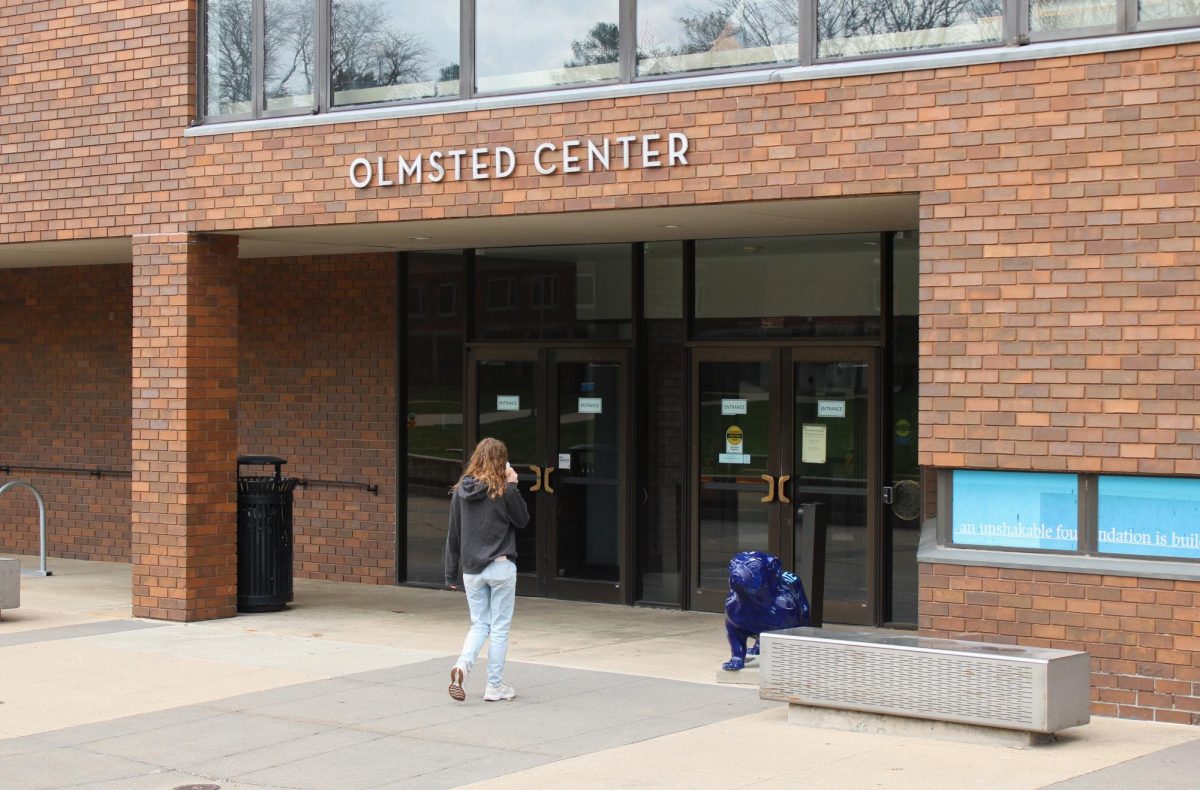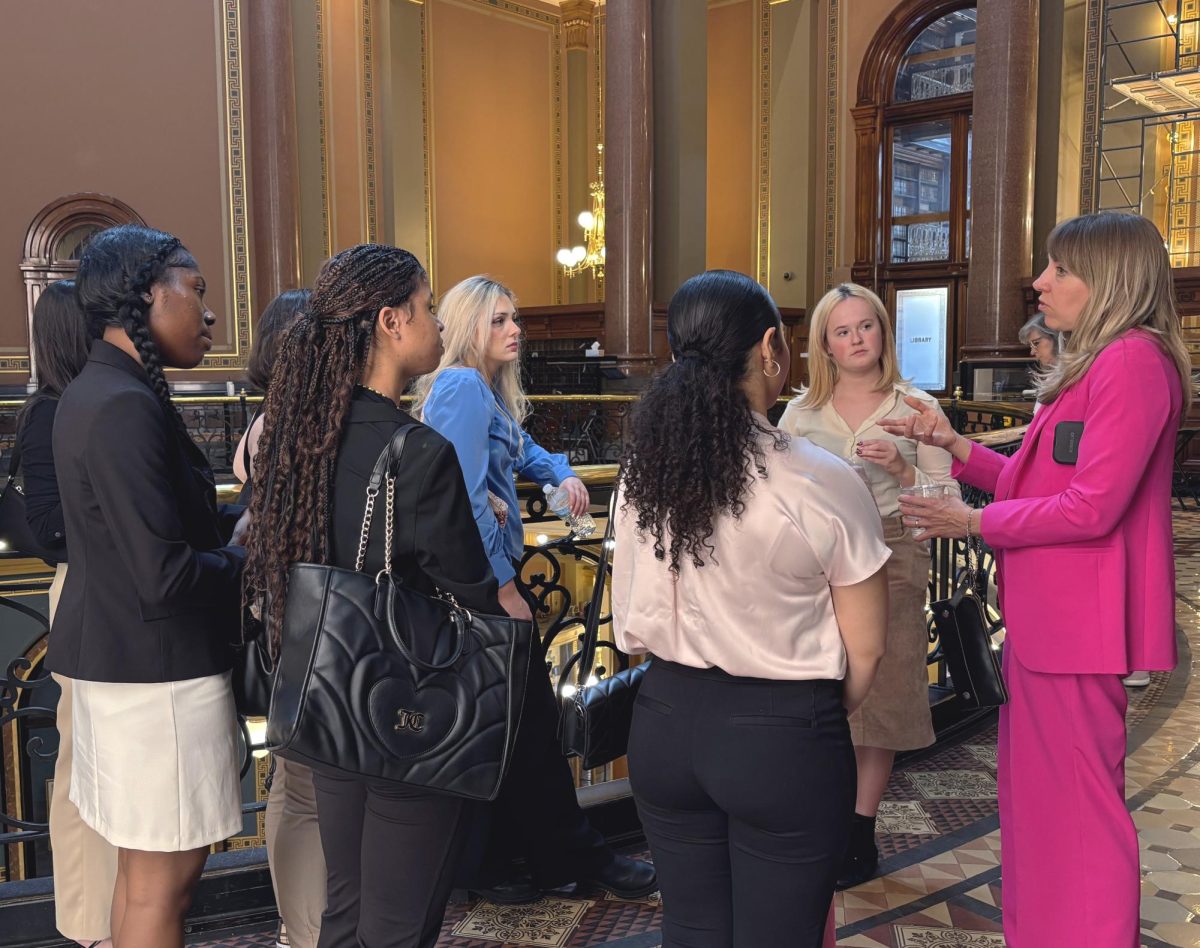Improvements are in the future for Drake University’s campus and student body thanks to an investment from Student Senate.
Thursday’s Student Senate meeting was dominated by preliminary discussion of how to use a $50,000 investment surplus to benefit campus and the student population.
The $50,000 has accumulated over the past few years in a quasi-endowment fund put together by previous Student Senates.
“Over a decade ago, Student Senate would spend students’ activities fees but didn’t have any kind of cushion in case they spent more than they had,” said Vice President of Student Life David Karaz. “So, five or six years ago, Student Senate decided that they would start saving surpluses into the quasi-endowment fund that is rolled into Drake’s endowment and it would earn interest.”
Recently, Student Senate realized that with their reserves/cushion over the last few years had ballooned into approximately $150,000. They decided to cap student activity fees as well as established a general rule that reserves were to never exceed $100,000. In other words, any money that exceeds the $100,000 cap will now be spent by Student Senate in some way to benefit campus and the student body.
With the $50,000 available and needing to be spent, Karaz said: “We’re in a situation where we can we can make a big difference in a way that many student governments wouldn’t even be able to think about. Now we have to make sure we’re making the right difference and we’ll have to consult the student body.”
While there has been some brainstorming of ideas on how to use the money, several senators emphasized that Senate must first inform the student body of why Senate has that much money at its disposal and must open up discussion with students as to how they would like the money to be spent.
“Our intention is to do something tangible — something students will be able to appreciate for a long time,” Karaz said.
This was only a preliminary discussion, there still needs to be extensive outreach to the student body, research and discussion before starting to make a decision. No decision is likely to be made before winter and before consulting with administration and the Board of Trustees.
Senate did emphasize, however, that this money should not go towards any kind of one-time event but rather something that will benefit all students every day.
Alyssa Mozak, from the office for sexual violence response, came to speak to Senate about bringing a new bystander intervention training program to Drake.
She and Dean of Students Sentwali Bakari had the opportunity to undergo bystander intervention training as part of the Mentors in Violence Training Program last spring and they would like to bring the program to Drake and make it available to Drake leaders and students as part of a one-day seminar.
The program is designed to train students how to prevent and intervene in gender violence. The session includes the topics of sexual and dating violence, homophobia and sexual harassment.
Mozak said, ideally, they would want to have the program over the course of one day some weekend in late October or early November. She and Bakari would facilitate involvement with the activity and there would be no cost with food and drinks being provided. The first pilot session would probably be open to 30 to 40 students, with that number increasing should the program prove popular and there is enough interest for more sessions.
“I would eventually like to include this training into the Adams Academy Leadership Program,” Mozak said.
Drake’s bandwidth was updated last Wednesday night, doubling the amount of bandwidth made available to Drake students and faculty. Senator Joey Gale reported that there was a week’s delay due to a problem with CenturyLink and the setup that was needed, but everything went off without a hitch. When asked by Karaz if it was possible that the bandwidth would fill up again like the last time the bandwidth was updated, Sen. Gale responded that they are still waiting on data to see if that is happening and if so they might have to resort to other options, such as tethering to Iowa State University in Ames.
Senate approved three motions/resolutions as well, endorsing Drake’s new five-year strategic plan, approving the appointment of the new committee members, and changing how proxies are dealt with.
Bakari gave his administrative report, informing Senate that faculty senate approved the strategic plan, the student code of conduct and the acceptable use of policy. Due to a state track meet in May, both graduate and undergraduate commencement will be moved back a day, now taking place the Saturday and Sunday of commencement rather than Friday and Saturday. Also, Drake has begun its search for a new associate dean of students, which should be done this winter.
The 24-hour space in Cowles Library opened this past Wednesday. According to Sen. Emily Grimm, there was some initial confusion if the cards would be ready on time or not, but most are ready to be picked up. Students can only go pick up their cards at the Facilities Office next to the Fieldhouse and across from the Bell Center.
From now on, Cowles will be closing down a little before 1 a.m., during which students planning to use the 24-hour space will have to wait in the lobby. Once the space opens, students will swipe their card to get in and once all of them have, a gate will be closed behind them. Once the gate is closed, the only exit will be through the doors leading out to University Ave., and they will have to swipe their card again to leave. There is no email notification for students to know when their card is done, but the time from order to pick-up is two business days.






